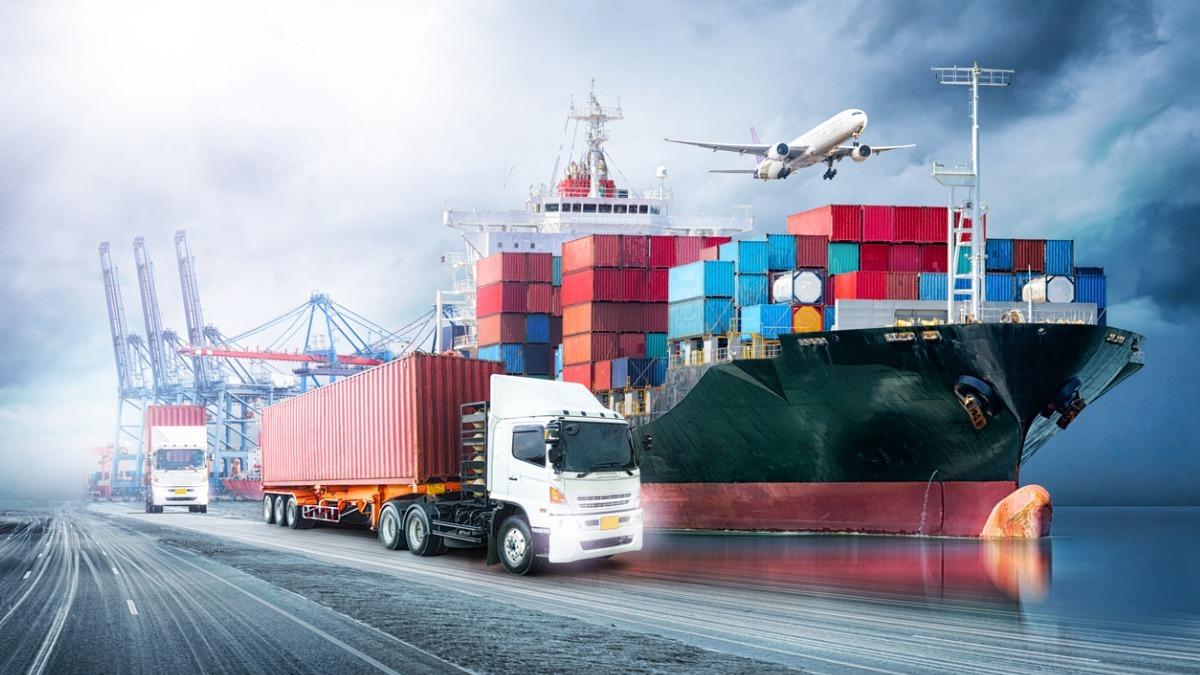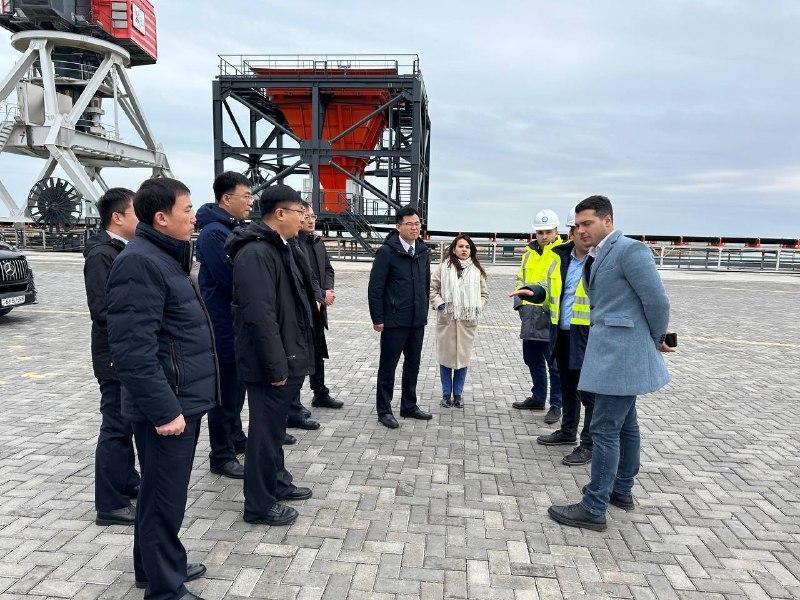China focuses on Trans-Caspian transport route Caliber.Az review
Interest in freight transport along the Trans-Caspian route is rapidly increasing due to its relatively short delivery distance, convenience, and logistical safety. The latter is crucial, especially amid the Western sanctions against Russia, which have disrupted shipments via the Northern corridor, and the attacks by the Houthis, which have posed serious challenges to navigation in the Red Sea.
Against this backdrop, there has been a convergence of transit projects within the framework of China's "Belt and Road Initiative" with routes of the Middle Corridor in recent years. During the visit to Azerbaijan this week by a delegation from the China Railway Corporation, partners from China expressed readiness to join the Trans-Caspian International Transport Route.
Today, it is difficult to overstate the importance for Central Asian countries and China of the Trans-Caspian container and truck transit routes towards Türkiye and the EU via the Middle Corridor routes, where Azerbaijan plays a significant role in its development. This pertains to three main vectors of the Middle Corridor: the long-standing Transport Corridor Europe-Caucasus-Asia (TRACECA) established in the late 1990s, the Trans-Caspian International Transport Route (TITR) launched in 2018, and the Lapis Lazuli Route established in 2019.
Currently, the most intensive freight transport is conducted along the Trans-Caspian International Transport Route (TITR). In this regard, partner countries (Kazakhstan, Azerbaijan, Georgia, and Türkiye) are coordinating plans to optimize regional logistics, modernize and implement digital technologies in transportation infrastructure, unify transport tariffs, and harmonize customs legislation. To achieve these goals, the Caspian region countries—Kazakhstan, Turkmenistan, and Azerbaijan—are modernizing their port and railway infrastructure.
“The annual handling capacity of the Baku-Tbilisi-Kars railway – an integral part of the Middle Corridor, has increased from 1 million tons to 5 million tons thanks to the Azerbaijani investments. Furthermore, Azerbaijan aims to increase the annual capacity of the Alat International Sea Trade Port from 15 million tons to 25 million tons. Azerbaijan, with over 50 trading vessels on the Caspian Sea, provides crucial transit services to regional states,” recently highlighted President Ilham Aliyev, underscoring the growing potential of Azerbaijan's transportation infrastructure.

Similar efforts are underway on the eastern shore of the Caspian Sea. Earlier this year, Azerbaijan and Kazakhstan agreed to update the roadmap for the synchronous elimination of bottlenecks and the development of the Middle Corridor for 2022-2027. This includes joint efforts to digitize logistics along the Trans-Caspian International Transport Route (TITR), dredging works at the Kuryk port in Kazakhstan, development of railway infrastructure, increasing the number of locomotives for loading and unloading wagons, and expanding the capacity of the modernized Aktau port.
Specific projects planned include the construction of a bypass railway line around the Almaty railway junction, which will redirect freight traffic to the new Zhetygen-Kazybek railway, the construction of a new railway line from Bakhty to Ayagoz, and the opening of a third border crossing with China at Bakhty-Chuguchak.
To optimize freight movement along the Middle Corridor, a digital platform called DTC (Digital Trade Corridor) has been created, and the railways of Azerbaijan and Kazakhstan have been integrated into the Track and Trace system, enabling real-time tracking of cargo movements along the route. Looking ahead, these trends are set to expand further, considering the European Union's plans to allocate $10 billion for the development of port and railway infrastructure in the Caspian region of the Middle Corridor, as well as support for implementing digital solutions to ensure seamless cargo transit and increase container and ferry fleets.
All these efforts have yielded tangible results. According to President Kassym-Jomart Tokayev of Kazakhstan, last year saw a 65% increase in freight transport volume along the Middle Corridor, amounting to nearly 3 million tons. Projections suggest that this figure could surpass 4.2 million tons in 2024. Moreover, the modernization of the maritime hub at the Aktau port and the container terminal in Alat will increase the number of transported containers to over 300,000 units and potentially up to 600,000 units in the longer term.

The success in developing the Trans-Caspian International Transport Route (TITR) in recent years has largely been achieved through a close partnership with China, which aims to significantly increase freight traffic along the Middle Corridor. Since the launch of the first China Railway Express container train in 2019, Chinese container multimodal transit has notably expanded in terms of cargo types and the geographic range of Chinese originating cities where block trains are formed.
Container block trains originating in China typically spend approximately twenty days en route along the Trans-Caspian route, significantly less than the transit time of goods from China and Southeast Asia via sea through the Suez Canal, which averages around 40-50 days. Furthermore, the Middle Corridor has gained immense importance for China today, which previously primarily relied on maritime transport or transit through Russia via the Trans-Siberian and Baikal-Amur Mainline railways for its cargo shipments to Europe.
Russian transit routes are currently severely limited due to sanctions imposed by the EU and the US. Meanwhile, ongoing attacks by the Yemeni rebel group Ansar Allah since last autumn have sharply reduced the movement of dry bulk carriers and container ships in the waters of the Red Sea and the Bab-el-Mandeb Strait.
"Azerbaijan, located at the crossroads of Europe and Asia, is of vital importance to China as the ancient Silk Road, which China is eager to revive, passes through Azerbaijan into Europe. The Belt and Road Initiative (BRI) of China spans across continents and is a mix of multiple road and sea connectivity projects, and Azerbaijan is strategically located with respect to the BRI," believes Pakistani expert and political analyst Basim Raza.
"In this context, the recently signed agreement on strategic partnership between Beijing and Baku is extremely important," he adds.
According to Raza, deteriorating relations between the US and China are pushing Beijing towards intensifying its economic strategy and accessing dynamic markets with growth potential, including Azerbaijan. This is due to Azerbaijan's economic and logistical capabilities and its trade and investment ties with Chinese businesses.
Azerbaijan is China's largest trading partner in the South Caucasus region, accounting for nearly 45% of all regional trade. In 2023, Azerbaijani-Chinese trade reached a record high of $3.1 billion, marking a 44% increase.
Considering the factors mentioned above, Beijing is making efforts to enhance cooperation with Astana and Baku in the transport and logistics sphere, including through Kazakhstan's transport and logistics centre in China to ensure monthly transit of 10-12 container block trains through Azerbaijan.
Specifically, on July 15, a delegation from China Railway Corporation led by Deputy General Director Sun Suyude held meetings with the leadership of Azerbaijan Railways CJSC (ADY) and the Port of Baku International Sea Trade Port (BIMTP), expressing intentions to join the Middle Corridor Multimodal Ltd, a joint venture managing the TITR route. During the meetings, the importance of recent intensive negotiations between railway, port, and logistics companies of both countries was emphasized to increase freight transportation along the Middle Corridor.
It was noted that a joint declaration signed by Azerbaijan and China at the Shanghai Cooperation Organization (SCO) summit on July 3 in Astana will strengthen cooperation in creating favourable conditions for transit transportation, enhancing the competitiveness of the TITR, including subsidizing transit through Azerbaijan to attract more container trains to the Port of Alat, and increasing the use of the Baku-Tbilisi-Kars railway line.








